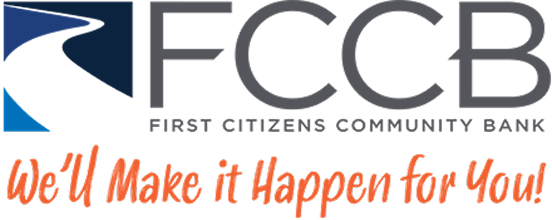Estate planning is all about protecting your loved ones, protecting what you’ve worked hard for your whole life, and providing peace of mind for you and your family.
- Have you ever worried about who would manage your accounts and pay your bills as you age?
- Are you concerned about how your children or grandchildren might manage a large inheritance?
- Have you ever wondered how you can provide for your current spouse without disinheriting your children from a previous relationship?
A well thought out Trust can be the solution to a variety of situations which you’ll learn more about in the video above.
Defining a Trust
- A Trust is an arrangement in which your money and/or property is legally managed by someone else or by an organization such as First Citizens Community Bank.
- A Trust relationship is governed by a legal agreement that establishes the terms of the trust. This agreement is drafted by an attorney.
A Trust agreement should include:
- Naming a Trustee - This person or organization will be responsible for the custody and management of the assets and for administration of the trust – in other words, who will be the trustee of the trust? First Citizens can be named as trustee to provide professional management.
- The agreement will also include instructions for Managing and Distributing your Assets.
- And, the agreement will name your Beneficiaries – those who will benefit from the assets now and in the future.
In addition, a Trust may be revocable or irrevocable. A revocable trust means you can change the terms at any time. An irrevocable trust cannot be modified after it is created without the consent of the beneficiaries.
And finally, a Trust may be created during your lifetime or as directed by your Will.
The Benefits
- Maintaining Control is a key benefit. Rather than transferring assets directly to a beneficiary, you can limit their access and maintain control using a Trust. So if you believe that it’s in the best interest of your beneficiaries to have someone else manage the assets being transferred to them, a Trust is the right solution. For example, you may have children who are old enough to receive your inheritance but you’re concerned about their ability to effectively manage these financial assets until a later date. By taking the time to develop a Trust, you can ensure the unique needs of each family member is being met. This can happen while you’re alive or after your death.
- Your Trust can also provide for a Loved One with Special Needs or someone needing long-term care. A Trust can manage expenses and ensure your loved one receives the quality care you would want for them.
- And, you can create a Tax-Advantaged Charitable Gift within your Trust which will allow you to provide for future donations to the charities you care most about.
- Protecting your assets from creditor claims so that creditors can’t reach the assets in the Trust
- Protecting your assets in the event of a divorce by making the assets in the trust untouchable by a spouse
- A Trust could also allow you to provide an orderly means of administering your personal and financial affairs should you become incapacitated to ensure your living expenses are paid and your assets such as your home are maintained.
- A Trust ensures your assets are managed for the benefit of your heirs and according to your wishes.
- You can manage your estate and inheritance tax liability through a trust by transferring assets into the trust and removing them from your taxable estate without having to gift them outright before you are ready to do so.
- And, you can avoid probate with a Trust which means you can direct how trust assets are to be distributed at death outside of court oversite and public record.
Choosing a Trustee
When you choose to name First Citizens as Trustee, you can rely on:
- Unbiased Loyalty to Carry Out your Wishes as outlined in your trust, which isn’t always possible when an individual is your trustee.
- You can rely on our knowledge & experience to manage various kinds of trust assets and relationships.
- And, you can rely on continuous service compared to the risk of personal conflicts, incapacity, or death of an individual trustee.
- Plus, we’ll provide thorough Reporting for Transparency. We’ll conduct Periodic Reviews to ensure comprehensive regulatory compliance, and we’ll ensure accurate Tax Reporting and Filing on behalf of your trust.
The next video in this series discusses four common trust types:
- Revocable Living Trusts
- Special Needs Trusts
- Spendthrift Trusts
- And, Marital Trusts
Not a deposit, not FDIC-insured, not insured by any federal government agency, not guaranteed by the bank, and may go down in value.


